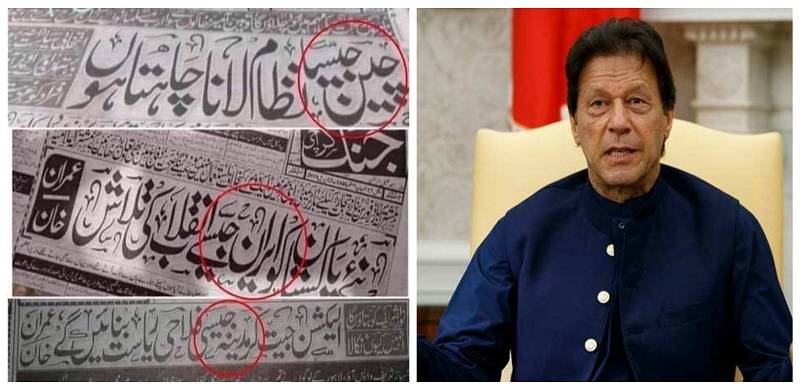
Prime Minister Imran Khan's contradictory statements about his idea of a development model for 'Naya Pakistan' have remerged on social media, with users commenting that the PM appears confused about what he wants for the country. Imran Khan had stated that he wanted to follow in the footsteps of China, Iran and on one occasion before becoming the PM he also praised the Iranian development model and vowed to emulate it when he is elected.
His aspirations to make Pakistan similar to the state of Medina is well-known.
But at various points throughout his administration, the prime minister has also mentioned that he was modelling the country's governance and development on everywhere from China, Malaysia, Sweden, Turkey, the United States and Iran. Many see these contradictory statements as a sign of confusion on his part.
"The road to nowhere," commented columnist Nadeem Farooq Paracha, who recently wrote a column for the Friday Times on the subject.
https://twitter.com/NadeemfParacha/status/1484817842092625921
In another photo circulating on social media, various headlines quoting the prime minister amount to a global atlas of development goalposts.
'I want to bring a China-like system to Pakistan,' the prime minister is quoted as saying in one headline.
The prime minister is quoted in another newspaper saying, 'Naya Pakistan needs a revolution like Iran.'
'After I win the election, I will build a state like that of Medina,' quotes yet another.
Earlier this month, the prime minister wrote an article titled, 'Spirit of Riyasat-i-Madina: transforming Pakistan,' in which he discussed the five basic tenants of Islam and called for Pakistan to strive to embody these principals to achieve the country’s highest potential.
Opposition party members denounced the prime minister's evocation of the holy site in his article, accusing him of attempting to obfuscate economic and governance concerns with religion.
His aspirations to make Pakistan similar to the state of Medina is well-known.
But at various points throughout his administration, the prime minister has also mentioned that he was modelling the country's governance and development on everywhere from China, Malaysia, Sweden, Turkey, the United States and Iran. Many see these contradictory statements as a sign of confusion on his part.
"The road to nowhere," commented columnist Nadeem Farooq Paracha, who recently wrote a column for the Friday Times on the subject.
https://twitter.com/NadeemfParacha/status/1484817842092625921
In another photo circulating on social media, various headlines quoting the prime minister amount to a global atlas of development goalposts.
'I want to bring a China-like system to Pakistan,' the prime minister is quoted as saying in one headline.
The prime minister is quoted in another newspaper saying, 'Naya Pakistan needs a revolution like Iran.'
'After I win the election, I will build a state like that of Medina,' quotes yet another.
Earlier this month, the prime minister wrote an article titled, 'Spirit of Riyasat-i-Madina: transforming Pakistan,' in which he discussed the five basic tenants of Islam and called for Pakistan to strive to embody these principals to achieve the country’s highest potential.
Opposition party members denounced the prime minister's evocation of the holy site in his article, accusing him of attempting to obfuscate economic and governance concerns with religion.

